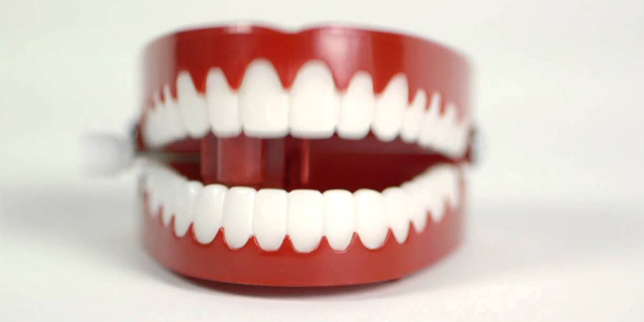Gingivitis in pregnancy can pose a risk to your newborn
But keeping up with your dental health during pregnancy can mitigate that risk.

Eva-Katalin/Getty Images
Pregnancy affects not only your reproductive system—but your entire body. Normal changes that happen while pregnant can make you particularly vulnerable to disease in general, and oral disease in particular—especially gingivitis.
During pregnancy, the inflammatory response is highly activated. Increased levels of hormones during pregnancy can make your gum tissue more sensitive and supercharge your body’s natural inflammatory response to plaque, encouraging your immune system to attack the bacteria in it. This can lead to inflammation and gingivitis, a gum condition that causes swelling and redness around the teeth.
Studies indicate that 40% to 80% of pregnant women experience gingivitis between the second and eighth month of pregnancy, making keeping up with dental hygiene and appointments more important than ever. It’s always important to prioritize your oral health, but especially while pregnant because gingivitis, if left untreated, can progress to periodontitis and become severe, increasing the risk of adverse pregnancy outcomes.
Symptoms of gingivitis
When gingivitis is left untreated and advances to periodontal disease, gums can separate from the teeth, which is a major contributor to tooth and bone loss.
Key symptoms of gingivitis in pregnancy may include:
- Dusky red or dark red gums
- Tenderness in the gums
- Swollen or puffy gums
- Gums that bleed easily when you brush or floss, even when gently
- Bad breath
- Receding gums
If you have any of these signs or symptoms, a call to your dentist is in order.
How pregnancy contributes to gingivitis
Half of your baby’s DNA comes from your baby’s father, which is “foreign” to your immune system. It’s essential that pregnancy induces a series of complex maternal immunological changes to prevent rejection of your baby, so your immune system becomes suppressed, which increases your susceptibility to a number of infections, including gingivitis.
How to prevent pregnancy gingivitis
Prevention of pregnancy gingivitis starts with good oral hygiene. In addition to eating a healthy diet and avoiding sugary foods, there are several effective ways to prevent or reduce plaque buildup while pregnant:
- Brush your teeth thoroughly, at least twice a day for at least two minutes, with an anti-gingivitis or anti-plaque toothpaste.
- Opt for an electric toothbrush to maximize your cleaning potential.
- Make sure your toothbrush has soft or extra-soft bristles.
- Use special care to brush around the gum line.
- Replace your toothbrush every three months.
- Floss daily at bedtime.
- Use a natural, anti-gingivitis mouthwash.
- Maintain your regular professional dental cleanings.
- Chew gum sweetened with xylitol, which inhibits the growth of the bacteria that produces plaque.
Gingivitis can affect pregnancy outcomes
Adverse pregnancy outcomes like low birth weight, very low birth weight, preeclampsia and gestational diabetes can be the result of gingivitis that has advanced to more severe disease.
However, if you find yourself with more than a bit of gingivitis, rest assured that there are ways to handle it safely during pregnancy and reduce risks. Your baby’s organ development happens during the first trimester and is when the adage “less is more” is truly applicable, so studies show the best time to have treatment is the second trimester (weeks 17 to 28).
In every case, be sure to check in with both your dentist and your birth care provider about safe treatment options during pregnancy.
Sources
Corbella S, Taschieri S, Del Fabbro M, Francetti L, Weinstein R, Ferrazzi E. Adverse pregnancy outcomes and periodontitis: A systematic review and meta-analysis exploring potential association. Quintessence Int. 2016;47(3):193-204. doi:10.3290/j.qi.a34980
Edwardsson S, Birkhed D, Mejàre B. Acid production from Lycasin, maltitol, sorbitol and xylitol by oral streptococci and lactobacilli. Acta Odontol Scand. 1977;35(5):257-263. doi:10.3109/00016357709019801
Ehlers V, Callaway A, Hortig W, Kasaj A, Willershausen B. Clinical parameters and aMMP-8-concentrations in gingival crevicular fluid in pregnancy gingivitis. Clin Lab. 2013;59(5-6):605-611. doi:10.7754/clin.lab.2012.120619
Favero V, Bacci C, Volpato A, Bandiera M, Favero L, Zanette G. Pregnancy and Dentistry: A Literature Review on Risk Management during Dental Surgical Procedures. Dentistry Journal. 2021; 9(4):46. doi.org/10.3390/dj9040046
Natri H, Garcia AR, Buetow KH, Trumble BC, Wilson MA. The Pregnancy Pickle: Evolved Immune Compensation Due to Pregnancy Underlies Sex Differences in Human Diseases. Trends in Genetics. 2019 July; 35 (7): 478-8. doi.org/10.1016/j.tig.2019.04.008
Tarannum F, Faizuddin M. Effect of periodontal therapy on pregnancy outcome in women affected by periodontitis. J Periodontol. 2007;78(11):2095-2103. doi:10.1902/jop.2007.060388
Xiong X, Elkind-Hirsch KE, Vastardis S, Delarosa RL, Pridjian G, Buekens P. Periodontal disease is associated with gestational diabetes mellitus: a case-control study. J Periodontol. 2009;80(11):1742-1749. doi:10.1902/jop.2009.090250


